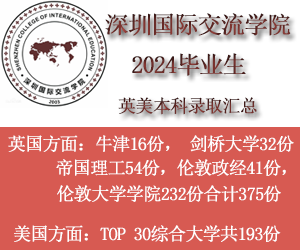By Winnie Zhou
This year, the SCIE Politics Club organized multiple events on the topic of UK select committees. We’ve witnessed many meaningful debates and thoughts coming out during the process.
At the start of the term, the Head of Humanities and Social Sciences faculty and founder of SCIE’s Politics club, Mr. Richard Driscoll introduced us to the basics of the select committee. To better answer our questions on how the select committee works in real life, Mr. Richard led us through a recent report published by the Health and Social Care and Science and Technology Committees, a select committee in the House of Commons[1]. It concluded the UK’s major lessons from Covid 19 regarding public health management by analyzing six critical areas of responses: preparedness, non-pharmaceutical intervention; social care; impact on different communities, and vaccines distribution. Within each section, specific statistics and quotations of experts are referenced.
We further discussed the comprehensiveness of the report by reading it in detail. A problem identified in the report was the lack of resources in the NHS. The Royal College of Midwives reported that “NHS was short of over 3,000 midwives and that 40% of RCM members worked three or more hours of unpaid overtime every week, suggesting that the NHS had been ‘reliant upon the goodwill of those who staff the system.'”,[2] the specific data of which provides convincing evidence of the credibility and accuracy of the report. However, the solution explicitly given to this problem, “the experience of the demands placed on the NHS during the covid-19 pandemic should lead to a more explicit, and monitored, surge capacity being part of the long term organization and funding of the NHS”[3], seems vague and unpromising. We are concerned that an unclear short-term and long-term target may be hard to follow up.
On January 6th, 2022, our school invited Dr. Alexandra Meakin from the University of Leeds to lecture on the select committee system in depth. A majority of our Politics Club members appreciated this opportunity and joined the event passionately. Dr Meakin showed us a detailed understanding of the working mechanism of the select committee and its composition. The lecture taught us that the select committee, usually a permanent division representing the public to examine and make recommendations to governmental policy, consists of MPs elected in the secret ballot. It conducts pre-appointed hearings with experts, goes through the written evidence submitted by experts, and ultimately forms reports to the government.
Most interestingly, she listed some common arguments about the strengths and weaknesses of the select committee, which inspires interesting thoughts in us. For example, statistics show that the select committee’s suggestions are relatively practical, among which the executives implement over 40% of recommendations. This helps improve policymaking a lot. Also, she explained the advantages of its membership which reflects the composition of parties in the Commons. Hence, a report representing a cross-party consensus would more forcefully influence the House of Commons.
However, she also admitted some flaws in the select committee. The cross-party composition may make the select committee less effective in giving a thorough recommendation, as reaching consensus may sacrifice some detailed plans. MPs are also busy with businesses outside the select committee, so they may not devote sufficient time to drafting a comprehensive report. Compared with the Commons in general, the select committee usually does poorly in terms of diversity. Most detrimentally, the select committee lacks formal power. They can not directly implement but merely suggest policies to the government. Nor does the committee have any mechanism to follow up the changes in governmental policies. That’s why around 60% of the recommendation provided by the committee cannot be implemented as expected.
Dr. Alexandra Meakin’s lecture inspires interesting thoughts among our club members. We actively participated in the Q&A session to discuss further the role of the select committee. One of our members asked about how the committee balances between the power constraint on the Chair, and the consistency of the policy recommendation or the committee’s expertise. To further explain, the student considered that giving the Chair a relatively huge power to control the committee’s agenda may be a prerequisite for systematic policy recommendation over time, yet this may allow the power of the Chair to grow uncontrollably – a threat to the democracy. Dr. Meakin agreed that this conflict constitutes the core conflict within the select committee. Based on her expert knowledge, she concluded that, in practice, different chairs solve this problem with their approach. Some may lean towards reaching a consensus in the committee at the sacrifice of effectiveness, while others may take a more rigid grip to reinforce their ideas. This would also have something to do with the composition of the committee. The extent of party politics in the committee may be a crucial factor determining how fiercely effectiveness collides with consensus.
Inspired by Dr. Meakin’s answer, another club member added a follow-up question. Because the composition of the committee reflects the composition of the Commons, the club member was wondering whether this membership benefits the majority party, and if so, to what extent the committee can still achieve its goal of supervising the government, especially over some fields at the core of party struggle. Dr. Meakin admitted the composition does somehow formally benefit the majority party while offering some counter-arguments for us to think about. For example, the backbench MPs don’t necessarily agree with the governmental policies, if not critical of it, thus are still likely to provide insightful recommendations. Also, being in the same party with the government, the MPs from the majority party are more incentivized to give constructive criticism for the governmental policies, as improving the government’s performance yields benefit in the elections. Yet, it’s correct to question the extent of criticism the committee can give. With the harsh party whip, a select committee with a majority of MPs from the majority party is unlikely to provide criticisms at the risk of infringing the government’s fundamental interests. In response, one student added another question: the select committee supervises the government, then what institution is responsible for overseeing the select committee? Dr. Meakin’s answer of “the Parliament” also led us to think about democracy in the UK. The lack of the absolute doctrine of separation of power in the UK political system may indicate the impossibility of strict supervision over the majority party’s power.
In addition to theoretical analysis, we have seen other interesting practical questions. One student extended our previous club activity to discuss the effectiveness of policy during the Covid and how the select committee may help improve that. Another student also asked about how the lesson from the select committee may improve our work at the student council. Dr. Meakin shared constructive suggestions for us from her years of experience working for a select committees. The event ultimately concluded with our heated discussion and abundant new knowledge in our heads.
With continued interest in the topic, we plan to organize a Mock Education Select Committee at the Humanities and Social Sciences week at our school, on the subject of “cap on the number of international students admitted in the UK universities,” a relevant topic to us all. Members from our Political Club will represent the 11 MPs in the committee, while four competitors outside of the club will act as four experts to provide written evidence and go through a hearing process. We hope that this event can boost students’ interest in political affairs and encourage critical thinking throughout the process.
Author Details
Winnie Zhou is 18 years old and is a student at Shenzhen College of International Education (SCIE).
[1] Health and Social Care, and Science and Technology Committees, House of Commons. “Coronavirus: lessons learned to date: Sixth Report of the Health and Social Care Committee and Third Report of the Science and Technology Committee of Session 2021–22.” Sept. 2021, https://committees.parliament.uk/publications/7496/documents/78687/default/
[2] Ibid., p.28
[3] Ibid.





